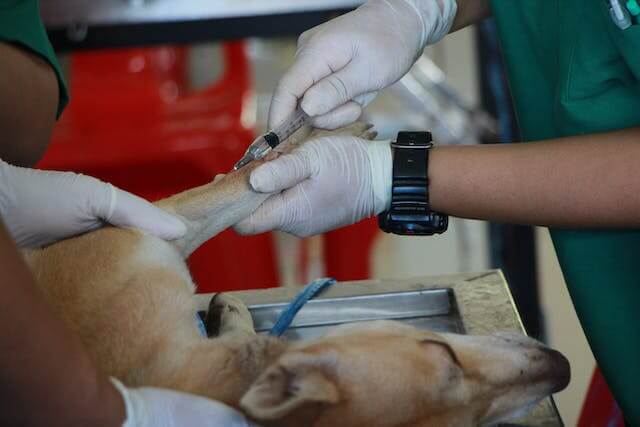Cheap Pet Insurance Options for Senior Dogs
As our canine companions get older, it’s important to consider pet insurance to help cover increasing veterinary costs. Senior dogs are more prone to illnesses and injuries that can lead to expensive medical bills. However, insurance for older pets tends to be more costly than for younger dogs.
In this article, we will explore some more cheap Pet Insurance for Senior Dogs options specially tailored for senior dogs. We’ll define what qualifies as a “senior” dog and how age affects premiums. We’ll also cover important factors to compare like deductibles, reimbursement levels, and common exclusions. By understanding your senior pup’s needs and shopping around for the best value coverage, you can give your old dog the medical care they deserve without breaking the bank with cheap Pet Insurance for Senior Dogs options.
What Age Qualifies a Dog as a Senior?
Most pet insurers and veterinarians define a senior dog as seven years of age or older. However, certain larger dog breeds may be considered seniors even earlier – as young as five or six years old.
Smaller breeds often remain more active well into their double-digit years. But large and giant breeds like Great Danes experience accelerated aging and are prone to developing age-related conditions sooner. Consult your vet to find out when your particular breed’s senior years commonly begin.
How Does Age Affect Insurance Premiums?
As dogs get older, their annual insurance premiums tend to rise noticeably compared to younger pets. This higher cost reflects the increased health risks that come with advancing age. That is why having a cheap Pet Insurance for Senior Dogs might be a little difficult compared to puppies. Factors like these contribute to premium hikes for senior dogs:
- Higher likelihood of developing costly chronic conditions like arthritis, cancer, kidney/liver disease, etc.
- Greater chance of costly surgeries like knee replacements, dental procedures, or tumor removals.
- Possibility of managing multiple illnesses simultaneously rather than isolated incidents.
- Shorter remaining life expectancy means insurers have less time to recoup costs of any claims from future premiums paid in.
To compensate, senior pet premiums commonly increase 5-15% per year of age from seven onward. Larger breeds usually have even steeper rises. The greatest premium discounts go to young pets (under 5 years) without existing medical issues.
Comparing Insurers Specializing in Senior Dog Coverage
Not all insurers adequately account for the unique needs of senior dogs in their policies. Thankfully, several companies focus specifically on insuring older pets in a cost-effective way. Here’s a quick overview of a few cheap Pet Insurance for Senior Dogs options to consider:
Embrace Pet Insurance: Embrace is known for offering comprehensive coverage and has policies that cover senior pets. They provide coverage for accidents, illnesses, and even alternative therapies.
Pets Best: Pets Best is another pet insurance provider that offers coverage for senior pets. They have customizable plans, allowing you to choose the coverage that fits your pet’s needs and your budget.
Healthy Paws: Healthy Paws is often praised for its straightforward and comprehensive coverage. While premiums may vary, they are generally competitive, and the company is known for its quick claims processing.
Figo Pet Insurance: Figo offers a variety of plans, including coverage for senior pets. They have a user-friendly app for claims and provide coverage for veterinary expenses related to accidents and illnesses.
ASPCA Pet Insurance: The ASPCA offers pet insurance plans with coverage options suitable for senior pets. They provide accident and illness coverage, and you can customize your plan based on your pet’s needs.
Before purchasing any pet insurance plan, it’s important to thoroughly review the policy details, including coverage limits, deductibles, and any exclusions. Additionally, consider getting quotes from multiple providers to find the most cost-effective option for your senior pet.
Do your research to weigh all features carefully based on your older dog’s unique health needs. You don’t necessarily need to go with the cheapest premium – balanced coverage is most important for senior pets.
Considerations When Choosing Senior Pet Insurance
When selecting a policy suited for your older companion, focus on these key factors:
Annual/Lifetime Payout Limit
Senior dogs are prone to chronic conditions needing ongoing treatment. An adequate life time limit ensures sufficient coverage as they age. Higher annual payout ceilings also help cover multiple conditions simultaneously as often occurs in later life.
Deductible Amount
Higher deductibles keep premiums low but require more out-of-pocket costs per claim. For seniors at higher risk of illnesses/injuries, opt for a lower deductible (e.g. $100-250) to avoid large surprise bills.
Covered Medical Conditions
Certain disorders like debilitating arthritis, cancer, or organ diseases frequently strike our elderly furry friends. Policies tailored for seniors offer broader coverage of these pre-existing conditions.
Chronic Condition Management
Prolonged diseases often require long-term conditional supplements/medications. Look for policies paying a percentage of these ongoing maintenance costs over multiple claim submissions.
Wellness Benefits
Preventive care plans can help keep seniors pet in good health. Perks up routine exams,vaccines, dental cleanings, blood panels, etc.Some offer 15-30% discounts for pets aged 10+.
24/7 Customer Support
When medical emergencies strike, quick claims assistanceis crucial. Senior-focused providers offer personal customer care agents available both days and nights year-round.
Additional Tips for Finding Affordable Senior Pet Insurance
A few extra strategies can potentially lower the cost of insuring your aging dog:
Multi-Pet Discounts
Bundling coverage for all your household pets (even a mix of dogs and cats) saves 5-15% collectively.
Increased Annual Deductible
Choosing a higher annual out-of-pocket amount in exchange for a 10-20% premium reduction may prove worthwhile.
Healthy Pet Wellness Plan
A preventative-focused program without full accident/illness coverage costs far less while still offering routine discounts and exams.
Ask About Other Discounts
Inquire if your vet offers client incentives, or if the provider has associations with dog clubs/breeders giving added perks.
Check for Rate Holds
Some carriers promise to never rise premiums due solely to senior pet’s age as long as plan remains active without gaps in coverage.
Consider Cosmetic-Only Plans
For low-risk senior dogs, policies restricting coverage solely to surgeries may fulfill owner needs while charging much less upfront.
With a little effort, comparing multiple options while weighing these factors can yield significant premium savings on high-quality insurance for your beloved old pup. Don’t hesitate to contact providers directly with any other questions.
Common Exclusions for Senior Dog Insurance
No pet insurance offers limitless coverage. Here are some standard exclusions to be aware of when insuring an elderly dog:
- Pre-existing conditions (may be covered with compromises like waiting periods)
- Routine veterinary care like yearly exams, meds, food supplements, grooming
- Elective/cosmetic procedures not medically necessary
- Breeding-related disorders; usually not applicable to neutered pets
- Congenital/hereditary conditions arising from genetics
- Recluse bites, flea/tick infestations homeopathic/alternative medicines
- Boarding/kennel fees during hospitalization
- Euthanasia/cremation/disposal services
- Services from unlicensed veterinarians
Certain options may customize policies to cover some pre-existing illness costs for seniors or waive exclusions on hereditary conditions if caught early enough. Be sure the coverage you select adequately addresses your pet’s stage of life.
Conclusion on Inexpensive Insurance for Senior Dogs
As our canine companions enter their golden years, carefully considering pet insurance offers peace of mind against hefty geriatric veterinary bills down the road. While premiums for senior coverage tend to be higher overall, shopping around reveals plans designed especially for older pets at reasonable rates.
Weigh deductible amounts, annual payout ceilings, chronic care provisions, and other features alongside any available discounts. Focus on balanced protection suited to meet needs unique to your dog’s senior stage. With diligent research and comparing policies catered to elders, you can give superior medical care at costs more affordable during those retirement years. Our senior furry friends deserve nothing less for their lifelong love and loyalty.






Leave a Reply